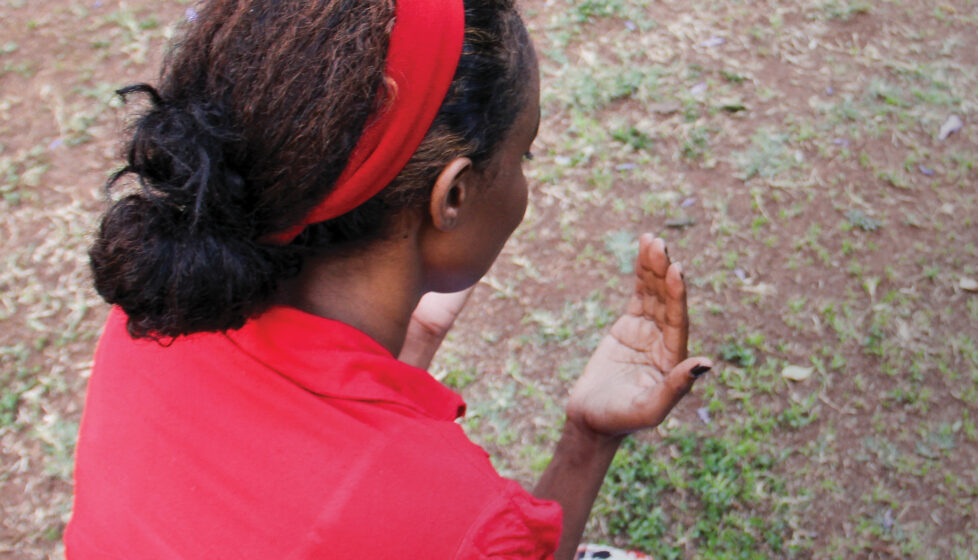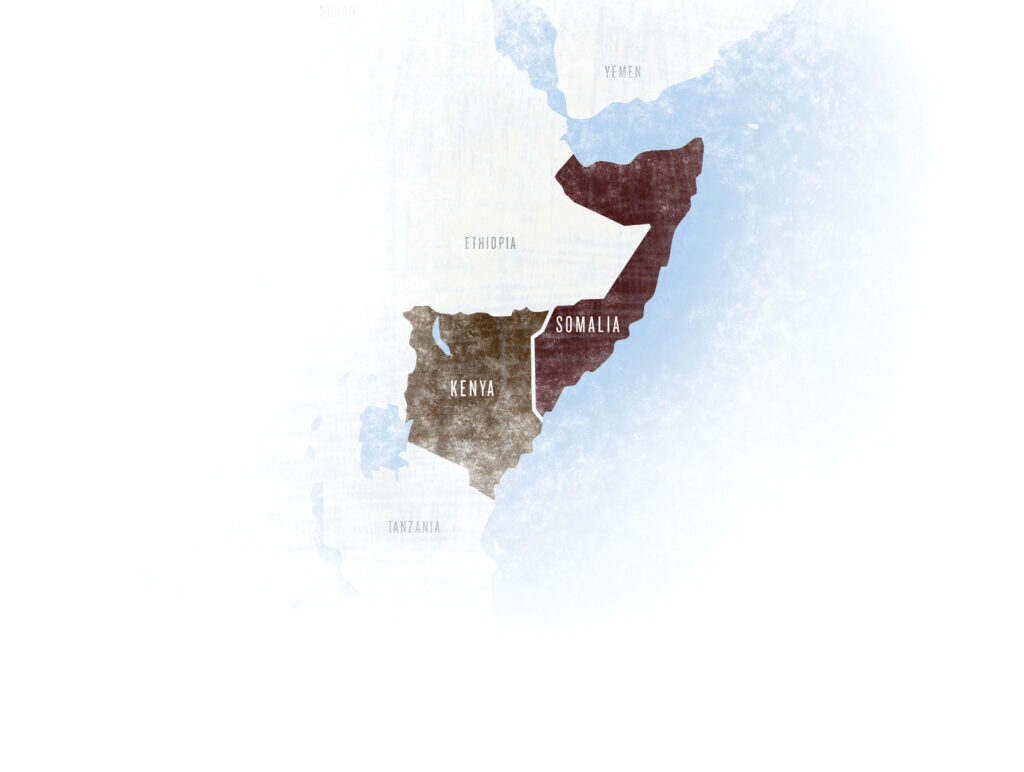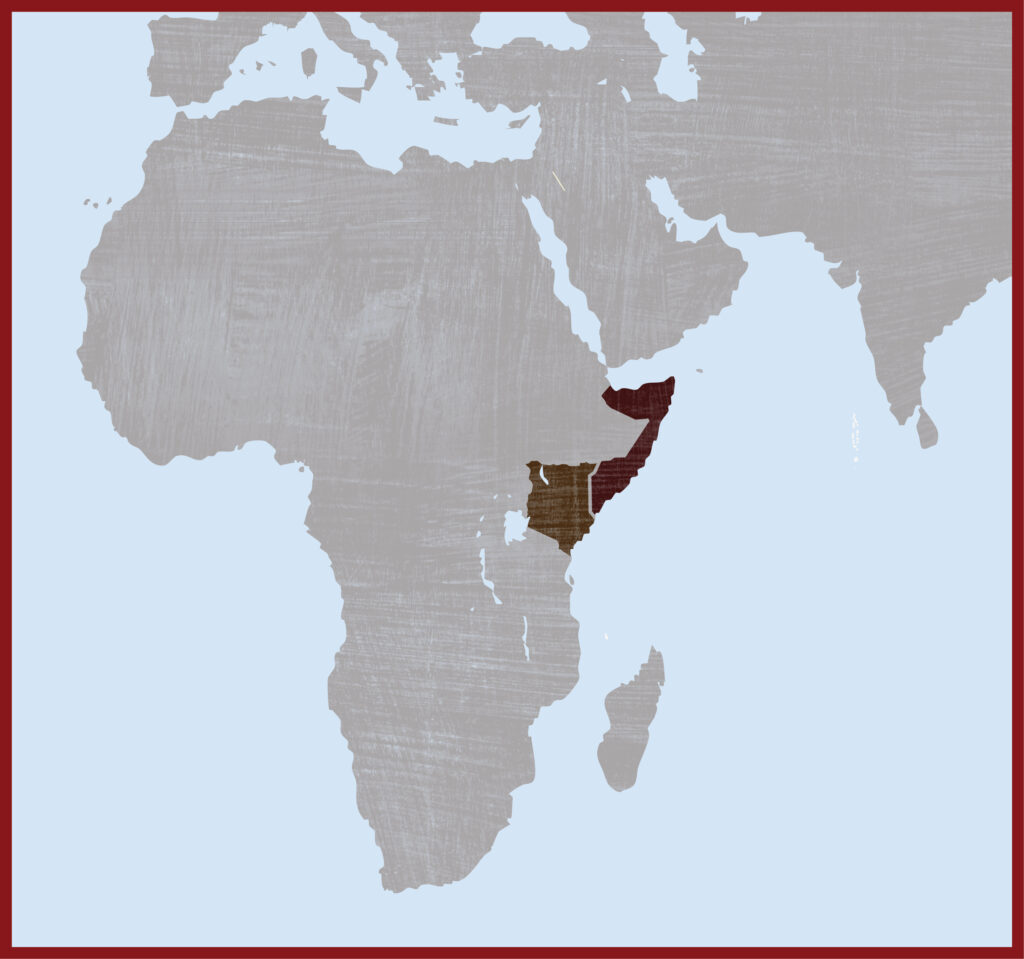Daily Threats “Normal” for Christian Convert in Kenya
Kenya

After questions about Islam led her to Christ, Aliyah became passionate about sharing Jesus with the rest of her Somali community in Kenya.
Aliyah flipped the black headscarf over her dark hair and fastened the veil across her face. It was nearly evening, and she was going to visit relatives at her former home in “Little Mogadishu,” the Eastleigh suburb of Nairobi, Kenya, that is populated almost exclusively by Somali immigrants.
Although Aliyah didn’t wear the hijab in daily life around Nairobi, she was careful to wear it whenever she went to Eastleigh, especially when she planned to visit her relatives. She didn’t want to attract the attention of the local sheikh’s henchmen or of neighborhood gossips, and the hijab and darkness helped conceal her identity.
It was dangerous for Aliyah to enter the Muslim neighborhood now that she had converted to Christianity, but it was equally dangerous for her to enter her relatives’ home. Just a few days earlier, her uncle had told her to stay away from his children or “something bad would happen to her.” One relative has threatened her several times. “You need to die,” he said. “You don’t deserve to live because of what you are doing.”

But Aliyah won’t stop visiting them. “I love my family and I want them to know Jesus, too,” she said. “That is why I go there.”
Several of Aliyah’s younger relatives openly ask her about Christianity, giving her hope that her efforts are bearing fruit. One cousin hides a smartphone with a Bible app from her fundamentalist father, and she always has questions for Aliyah. “She reminds me of when I was a Muslim,” Aliyah said. “I was like that, with so many questions.” She believes this relative will eventually commit her life to Christ.
“What if I Die?”
Aliyah was raised in another country by her Somali mother. When she was 11, Aliyah and her mother moved to Kenya to live with relatives. Concerned that Aliyah had been negatively influenced by Western culture, the relatives enrolled her in an ultraconservative Islamic school. She quickly memorized the Quran, and she didn’t stop there. “I wanted to understand whole ideas,” she said.
But when she asked her teacher specific questions about Islam, he got angry. “I had a lot of fear, and I was just hopeless,” she said. “I was trying very hard to do things just to find a way to go to heaven.” It took nine years of questions and interactions with Christians before Aliyah was persuaded to leave the faith of her culture, community and family to follow Jesus.

Aliyah’s Somali community in Eastleigh had begun to threaten her even before she placed her faith in Christ. Because she was working as a translator for foreigners, many Somalis assumed she was already a Christian. Their threats, however, only helped push her into the arms of Christ.
“They said they have to do some actions to me,” she recalled. “I thought, ‘What if I die, if these people kill me today? Where am I going to go, as I don’t have any assurance in Islam?’” That night, she met Jesus in a dream. “I am the only way and the truth,” she heard Him say. “You don’t have to fear anything, because I am the one who will never leave you.” At that moment, her fear vanished, and she knew with certainty that if she died, she would be with God in heaven.
In the years since becoming a believer, Aliyah has had to call on that fearlessness repeatedly when confronted about her faith by Muslims in her community. Once, a Somali Muslim security guard at an apartment building insisted on searching her bag, and she boldly challenged him. “Do you think everyone is just like you … going around with bombs everywhere?” she asked him. Later, she was told that the guard said he would have killed her that day if given the chance, because she was a Christian.
Aliyah receives frequent text messages from people, usually anonymous, expressing their hate for her. “Before I became a believer, I never had this kind of hard times,” she said. “But after I became a believer, even secretly in the beginning, it just became hard and everyone turned against me.”
One day, the local imam summoned her to meet with him. Her name had been found among items belonging to another Somali convert. “What connection do you have with this guy, because he is an infidel?” he asked. “Are you an infidel, too?”
Aliyah deflected his questions, but she soon began to notice the imam’s brother and others following her. An unfamiliar man claiming to be her neighbor accosted her outside her house one Sunday morning and asked her where she was going. Then, in 2016, she and some friends were chased by four men with knives while walking down a street. Eventually, she decided it was best to leave Eastleigh.
“Suffering Is a Gift”
Since coming to Christ, the threats and attacks are the “normal” daily backdrop to Aliyah’s life. “I think whoever believes Jesus and serves Him will suffer,” she said. “I also believe suffering is a gift from God according to the book of Philippians. We are also not just granted to believe, but to suffer.”
She is committed to reaching her family at great personal risk and is just as committed to sharing Jesus in her Somali community. Her mentor and spiritual father says he often gets text messages from Aliyah saying, “I’m sharing the gospel with people on the bus.” And then later he receives a follow-up message: “There is a guy threatening me; please pray.”

While some might view Aliyah’s behavior as reckless or even foolish given her surroundings, she has a different perspective. “Somebody who serves Jesus is not foolish,” she insisted. “It is the best thing ever. If we are children of God, we suffer, not because we need to be good, but … for us to even learn more who He is. Otherwise we wouldn’t be thankful.”
Aliyah hopes to run a safehouse for young, female Christian converts who fear persecution from their families. She would like to provide not only Bible study but also some kind of vocational training. VOM is already helping her provide shelter for a young Somali who fled her family after becoming a Christian.
“Just pray for me that God can use me in this ministry that I am going to start,” she asked, “and pray that many come to Christ and know Him. That is more important for me.”


 Guide
Guide